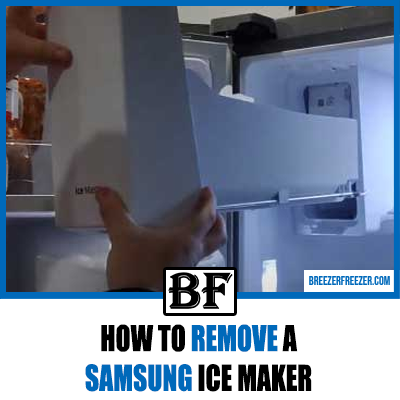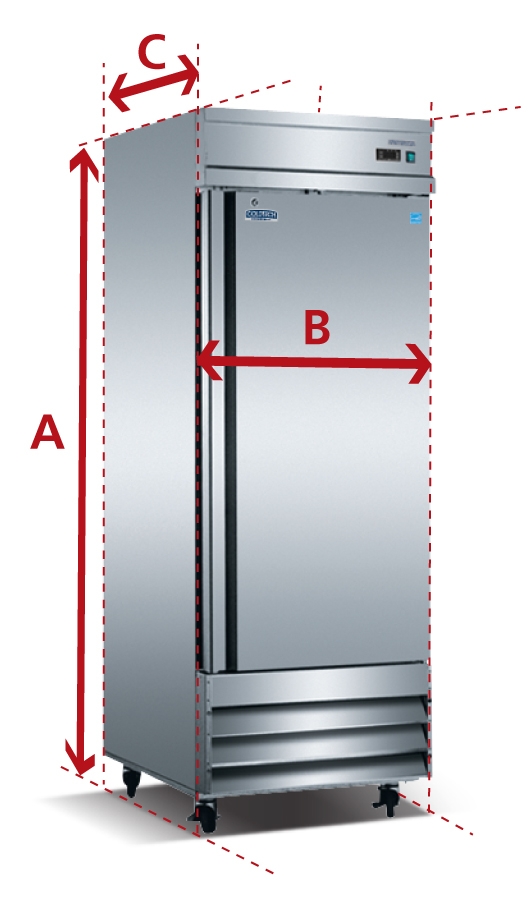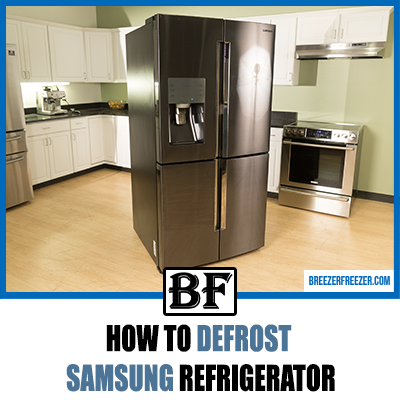Is Your GE Refrigerator Making Loud Humming Noise? [Solved!]

Your GE refrigerator is expected to produce a soft humming sound during its normal operation, such as during self-defrost, when the ice maker is filling up with water, or when the motor and compressor are running.
However, if the humming sound becomes unusually loud, it could indicate a problem.
Here are the potential causes and solutions for a GE refrigerator making a loud humming noise:
9 Reasons Why Your GE Refrigerator is Making Loud Humming Noise
| Potential Cause | Quick Solution |
| Obstructed evaporator fan blade | Inspect the fan blade and remove the obstruction |
| Faulty evaporator fan motor | Replace the faulty evaporator fan motor |
| Obstructed condenser fan blade | Inspect the fan blade and remove the obstruction |
| Old or faulty condenser fan motor | Replace the faulty condenser fan motor |
| Worn-out compressor | Get a new fridge |
| Obstructed air vents | Rearrange the supplies to improve air circulation |
| Obstructed water inlet valve | Replace the faulty water inlet valve |
| Floor vibrations | Level the ground |
| Icemaker lacking water supply | Connect the water supply to fill the icemaker |
Experiencing a Loud Humming Noise from Your GE Refrigerator?
Here’s What’s Causing It and How to Resolve the Issue:
Blocked Evaporator Fan Blade
The evaporator fan blade aids the motor in circulating cold air. If it’s blocked by ice or any other object, it can create a loud humming sound. This fan blade is located at the back of your GE refrigerator.
Solution:
- Disconnect your GE refrigerator from the power source.
- Open the freezer to locate the evaporator fan assembly.
- Expose the evaporator fan and rotate it fully to find any blockage.
- If you find an obstruction, remove it.
- Replace the fan cover and reconnect your refrigerator to the power source.
- Turn on the unit to check if the humming noise persists.
- If the noise continues, inspect the motor.
Defective Evaporator Fan Motor
The motor drives the blade, so if the evaporator fan assembly is suspected to be the problem source, the motor cannot be ignored. A faulty evaporator fan motor can cause a loud humming sound.
Solution:
- Disconnect your GE refrigerator from the power source.
- Locate and disconnect the evaporator motor from its connecting wires.
- Use a multimeter to test the fan motor for continuity.
- If the multimeter indicates a lack of continuity, replace the fan motor.
- If there is continuity, the fan motor is functioning correctly, and you should reconnect it and inspect other components.
Blocked Condenser Fan Blade
Like the evaporator fan blade, the condenser fan blade can create a loud humming sound if it’s blocked. This fan blade, which aids in ventilation and temperature regulation, is also located at the back of your GE refrigerator.
Solution:
- Disconnect your GE refrigerator from the power source and move it away from the wall to access the condenser fan assembly.
- Locate the condenser fan assembly and expose the blade.
- Manually rotate the blade fully to identify any obstruction.
- Remove the obstruction or allow it to defrost.
- Replace everything, including the fan cover, and reconnect your refrigerator to the power source.
- Turn on the unit to check if the humming noise persists.
- If the noise continues, inspect the condenser fan motor.
Defective Condenser Fan Motor
A defective condenser fan motor can also cause a loud humming sound. Before considering a replacement, confirm that the fan motor is indeed faulty.
Solution:
- Disconnect your GE refrigerator from the power source and move it away from the wall.
- Locate and disconnect the condenser fan motor.
- Use a multimeter to test the motor for continuity.
- If there’s no continuity, replace the motor.
- If there’s continuity, reconnect everything and explore other possibilities.
Worn-Out Compressor
The compressor, which regulates the flow of refrigerant gas, can cause a loud humming noise if it’s worn out. A faulty compressor can also lead to refrigerator failure.
Solution:
- Move the refrigerator away from the wall and turn it on.
- Listen for noise coming from the compressor area at the back of the refrigerator.
- If the compressor needs replacing, consider buying a new refrigerator unit, as replacing the compressor can be costly and technically challenging.
Blocked Air Vents
Packing food supplies too closely together in the refrigerator can block the air vents, causing the refrigerator to produce a loud humming noise.
Solution:
- Rearrange your food supplies in the refrigerator to ensure the air vents are open and air circulation is good.
Blocked Water Inlet Valve
If your refrigerator hums louder when the icemaker fills up with water, the water inlet valve may be blocked with mineral deposits.
Solution:
- Refer to your GE refrigerator manual to locate the water inlet valve, usually at the bottom-left side of your refrigerator.
- Remove the back cover at the bottom-left side of the unit to expose the inlet valve.
- Listen to the noise produced by the valve when the refrigerator is running.
- If the noise is too loud, replace the obstructed inlet valve.
- Always turn off the refrigerator before replacing the water inlet valve. After that, remove the faulty valve and install the new one.
Floor Vibrations
If your GE Profile refrigerator is standing on a non-uniform surface, it may vibrate loudly and produce a humming sound.
Solution:
- Move the refrigerator to a uniform surface.
- If possible, adjust the feet to ensure they all touch the ground.
Ice maker Without Water Supply
If the icemaker is not connected to the water supply, the refrigerator can produce a loud humming sound.
Solution:
- Connect the icemaker to the water supply to prevent unnecessary noise and potential damage to the icemaker.
Frequently Asked Questions
Why Is My GE Refrigerator Making a Loud Humming Noise?
Your GE refrigerator may be making a loud humming noise due to a significant blockage or failure involving the condenser fan blade or motor, the evaporator fan blade or motor, the compressor, or the water inlet valve. Other reasons include floor vibrations, air vent obstruction, and a dry ice maker.
How Do I Stop My GE Refrigerator from Making Noise?
You can stop your GE refrigerator from making noise by identifying the cause and implementing the appropriate solution.
This could involve removing obstructions around the fan blades, replacing a faulty motor, changing obstructed or defective filters, positioning the fridge on level ground, or connecting the icemaker to the water supply.
Why Is My Brand New GE Refrigerator So Loud?
Your brand new GE refrigerator might be loud due to overstocking that obstructs air vents, the icemaker not being connected to the water supply, or floor vibrations from positioning the unit on a non-uniform ground.
Final Thoughts
In general, if your GE refrigerator is humming loudly, you should check the evaporator fan motor or blade, the condenser fan motor or blade, the compressor, air vents, and the water inlet valve for any faults or obstructions.
Also, ensure the fridge is placed on a level ground and the icemaker is connected to the water supply. If these DIY solutions don’t resolve the issue, it’s recommended to consult a professional for further assistance.




